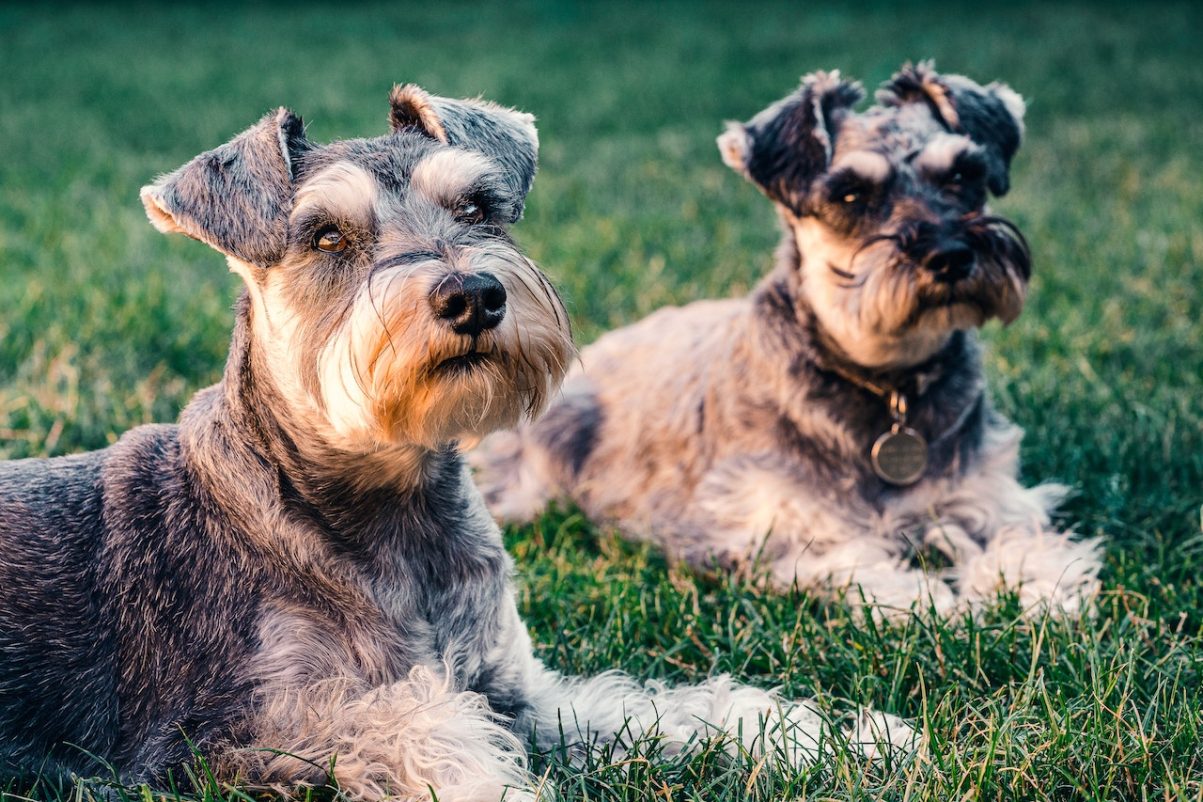Let me start by saying that i just loooove dogs, but heck… I have allergies. So for me, hypoallergenic dogs are a match made in heaven.
Ok, ok… Now, you might be thinking, “What in the world is a hypoallergenic dog?”
This is exactly what I’m going to expand on today…
What Are Hypoallergenic Dogs?
First things first, let’s break down the term “hypoallergenic.” It’s a bit of a mouthful, isn’t it?
In the simplest terms, hypoallergenic means something that’s less likely to cause an allergic reaction.
So, a hypoallergenic dog is a breed that’s less likely to stir up your allergies.
However, no dog breed is 100% hypoallergenic. All dogs produce allergens, but some breeds produce fewer than others.
These allergens are found in a dog’s dander (dead skin), saliva, and urine.
Why Do Some People Need Hypoallergenic Dogs?
I kinda answered that above in my intro, but you might still be wondering why hypoallergenic dogs are a thing.
Well, according to the Asthma and Allergy Foundation of America, around 3 in 10 people in the United States have allergic reactions to cats and dogs.
And dog allergies are more common than cat allergies!
For these folks, being around dogs can lead to a whole host of unpleasant symptoms, like sneezing, runny nose, and itchy eyes. In severe cases, it can even trigger asthma attacks.
But with hypoallergenic dogs, these symptoms can be significantly reduced, making it possible for allergy sufferers to enjoy the companionship of a furry friend.
Popular Hypoallergenic Dog Breeds
There are quite a few breeds out there that are considered hypoallergenic. Here are a few of the most popular ones:
Poodles
These curly-haired cuties are known for their intelligence and their hypoallergenic coats. They come in three sizes: standard, miniature, and toy.
Schnauzers

These bearded pups come in three sizes as well: giant, standard, and miniature. They’re known for their distinctive appearance and their hypoallergenic status.
Bichon Frise
These fluffy little guys are not only hypoallergenic but also super friendly and great with kids.
Portuguese Water Dogs
These dogs are not only hypoallergenic, but they’re also excellent swimmers. Fun fact: President Obama has two of these!
Shih Tzus
Despite their long, flowing coats, Shih Tzus are actually hypoallergenic. They’re also known for their friendly and outgoing personalities.
Other Breeds (Extensive List): Check this article on the top 20 hypoallergenic dog breeds
Caring For Hypoallergenic Dogs
Even though hypoallergenic dogs are less likely to cause allergies, they still require regular grooming to keep their coats clean and healthy.
Regular baths can help reduce allergens, and brushing can help remove loose dander.
Also, remember that just because a dog is hypoallergenic doesn’t mean it’s low maintenance.
Many hypoallergenic breeds are high-energy and require plenty of exercise and mental stimulation.
Hypoallergenic Dogs And Allergens
Now, let’s get a bit more into the nitty-gritty of what makes a dog hypoallergenic. As we mentioned earlier, all dogs produce allergens, but hypoallergenic breeds produce fewer.
These allergens are proteins found in a dog’s dander, saliva, and urine.
When a dog sheds, these allergens can become airborne and cause allergic reactions in susceptible people.
Hypoallergenic dogs, however, shed less than other breeds, reducing the amount of dander and allergens in the environment.
This great article shows 10 ways you can use to reduce dog allergens at home.
The Science Behind Hypoallergenic Dogs
The science behind hypoallergenic dogs is still a bit murky.
Some researchers believe that hypoallergenic dogs produce fewer allergens because of their skin’s natural oils, while others think it’s due to the structure of their coats.
What we do know is that not all hypoallergenic dogs are created equal. Some breeds may be hypoallergenic for one person but not for another.
It’s always a good idea to spend time with a breed before bringing one home to see if your allergies can handle it.
Living With Hypoallergenic Dogs
Living with a hypoallergenic dog can be a game-changer for people with allergies. But it’s important to remember that even hypoallergenic dogs can cause allergic reactions in some people.
To minimize the risk, it’s crucial to keep your home clean. Regular vacuuming, dusting, and washing of bedding and upholstery can help reduce allergens.
Air purifiers can also be a big help in keeping the air in your home clean.
The Hypoallergenic Dog Community
There’s a whole community of hypoallergenic dog lovers out there.
From online forums to local meetups, there are plenty of places to connect with other owners and share tips and experiences.
And let’s not forget about the breeders and rescue organizations that specialize in hypoallergenic breeds.
They can be a great resource for finding the perfect hypoallergenic pup.
Final Thoughts
So there you have it, folks! That’s the lowdown on hypoallergenic dogs.
In conclusion, hypoallergenic dogs can be a great option for people with allergies.
They allow allergy sufferers to experience the joy and companionship of a canine friend without the sneezing and itching.
But remember, hypoallergenic doesn’t mean allergen-free.
Also, everyone’s allergies are different. What works for one person might not work for another.
So, if you’re considering getting a hypoallergenic dog, do your research and spend some time with the breed first before bringing one home, so you can see how your allergies react.
And once you do, regular grooming and cleaning are key to keeping those allergens at bay.
And as always, make sure you’re ready for the responsibility of a dog. Hypoallergenic or not, all dogs deserve loving, committed homes.
Happy dog parenting!

